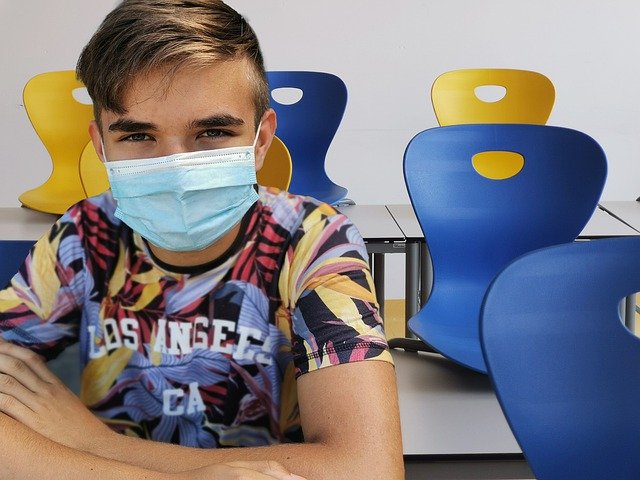Vaccines are beginning to be dispensed, so hope for an end to the pandemic is on the horizon. Life, however, is still far from normal. Education has been deeply impacted by the virus response. Virtual learning is now widespread, while kids in traditional classes are having to cope with untraditional rules and regulations aimed at keeping us all safe.
If your children are attending in-person classes, there is still a different aspect to their normal day-to-day learning. Many extra-curricular programs have been closed or are operating in a limited way. Staying socially distant means kids don’t interact the way they used to. Even classroom participation may have been reduced in an effort to keep kids and teachers safe.
Back To School Tips For Parents During Covid
When your children are in a classroom, it may be hard for them to physically distance themselves from friends. The fact that they have to do so can create anxiety for some kids who may worry that peers or teachers might get sick and pass the virus on to them.
Remind your children to wash their hands during the school day and wear their masks. Teach them to cover their sneezes and coughs with their elbow.
But, at the same time, try to avoid making them feel overly cautious to the point that they are afraid to do anything. While it’s good to make them aware of their part in helping to stop the virus’ spread, it can be upsetting or frustrating for them to be constantly on guard and worrying about everything little thing they do.
Helping Kid’s Mental Health During Covid
To support your kid’s mental health during covid, try to keep to a routine. Children feel more secure when they know what to expect. Although they may complain about having to do homework at a certain time or go to bed at the same time, keeping a routine makes them feel like things are under control.
Also ensure that your children know that you are open to discussing their worries and fears. Check in with them regularly to ask if they are concerned about anything at school or if anything is bothering them.
Watch for signs that your child is anxious or depressed. Maybe they aren’t eating well or seem withdrawn or irritable. Have you noticed that their sleeping habits have changed? Are they complaining about frequent stomachaches or headaches? These changes can indicate that your kids are experiencing heightened stress and anxiety that needs to be addressed.
Acting out their fears through play or by writing or drawing can help when a child can’t find the words to tell you how they are feeling. If you are concerned they may be struggling emotionally, set aside time to interact with your child. Pay close attention to their words or ask questions about their drawings – these can give you insight into how well they are coping.
Take Care Of Yourself, Too
While you are helping your child, don’t forget to support your own mental and emotional health. Aside from navigating the innumerable changes brought on by the pandemic, many families have faced financial impacts, job loss, and the loss of loved ones to the virus.
There is no doubt that most people’s anxiety levels have increased. This upending of our normal world and the resulting reduced social connections have led to a corresponding increase in depression, anxiety, and other mood disorders. If possible, stay connected with family and friends virtually for support. It can also be helpful to look for online support groups.
Meditation and deep breathing exercises can help to calm your thoughts, as can limiting sensationalized news coverage as much as possible. Try to distract yourself with a hobby or by getting some exercise, either in the home or out in a nearby park.
Anxiety and depression can show up in several ways. Keep an eye out for the signs of heightened stress that were mentioned in the prior section – in both you and your children.
If you notice concerning changes like these, it may be time to consider calling a professional – especially if these changes are becoming more obvious or have lasted for more than two weeks.
We Are Here For You
For more information, contact The Children’s Center for Psychiatry Psychology and Related Services in Delray Beach, Florida or call us today at (561) 223-6568.

